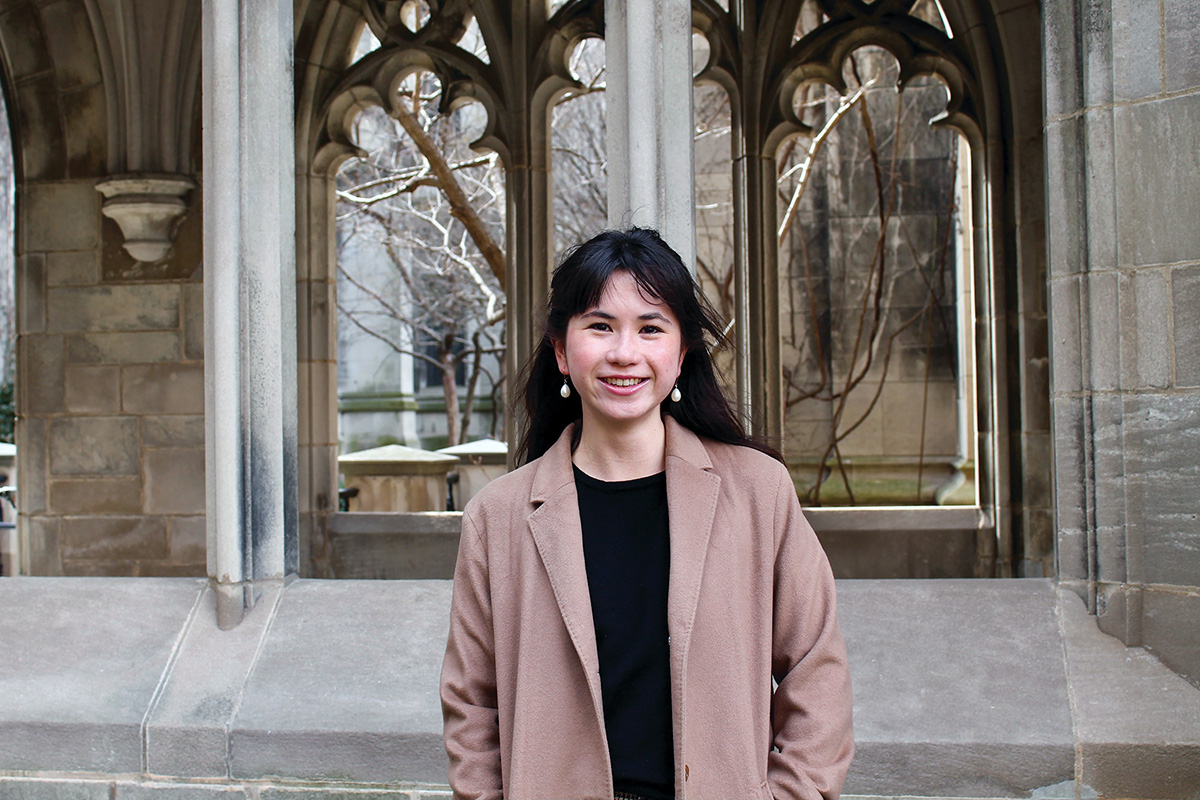Erica Hogan

Taking a gap year after graduating from Exeter wasn’t part of Erica Hogan’s original life plan. But she is so thankful she did. “The first month of my gap year I was really stressed because it was the first point in my life where I had this broad, expansive choice,” Hogan ’18 recalls, now five years later. “Having that time really forced me to be super intentional about what I wanted to be doing, what it would do for me, and how I would grow through it. It made me a much better student in college.”
Ultimately, Hogan chose to travel to Zambia, where she volunteered as a teaching assistant in a fifth-grade classroom in the morning and worked with adult learners in the afternoon. She often crossed the border into Zimbabwe and noticed how differently the two countries had fared since independence. She credits that formative experience with her deep intellectual interest in Africa and the coursework she pursued at the University of Chicago. Hogan’s senior thesis investigated the relationship between social organization and human well-being; specifically, the philosophy behind the political movement for a federated union of African states, modeled after the United States. She wanted to understand why, in the eyes of political leaders at the time, federation was necessary to ensure both societal prosperity and individual well-being.
This summer, Hogan heads to Washington, D.C., as a James C. Gaither Junior Fellow in the Africa Program at the Carnegie Endowment for International Peace, a nonpartisan international affairs think tank. We caught up with her following her visit to the Academy for her class’s fifth-year reunion and two weeks before her college graduation to hear more about what her future holds.
What will you be researching during your fellowship year?
It’s really important to me that I do research that’s mission focused, or research that matters beyond just the people who read research. That’s one reason why I’m really excited to be at Carnegie and at a place where research happens that’s explicitly meant to drive tangible change. The Africa Program is very much driven toward trying to reshape the U.S.-Africa relationship into one that’s much more of a partnership. That’s something that I want to get behind.
What did you take from Exeter that helped prepare you for this work?
The history sequence did a really good job of helping me understand how social phenomena don’t happen in one clear narrative or one clear setting, which is super important to what I do now. And my friends in college are always like, “You’re so meta, so reflective.” I think that’s entirely from the English curriculum, and I’m really glad. That kind of skill is one that doesn’t necessarily come easily, but is really essential to living life intentionally.
What are your plans after the fellowship?
I want to do a Ph.D., but I’d love to take some time off before that. I feel like if you’re in the business of trying to under-stand people, the best way to do that is to talk to people. So that is my biggest goal after the fellowship.
— Jennifer Wagner
Editor’s note: This article first appeared in the summer 2023 issue of The Exeter Bulletin.


